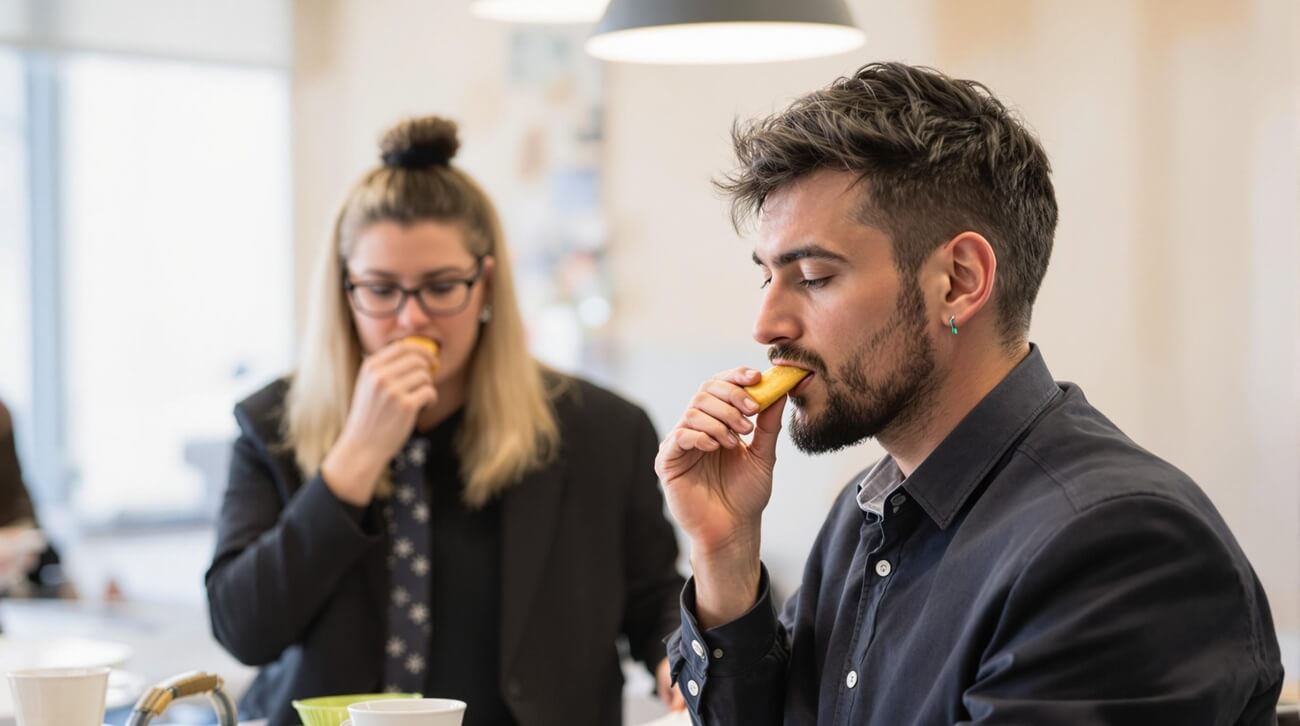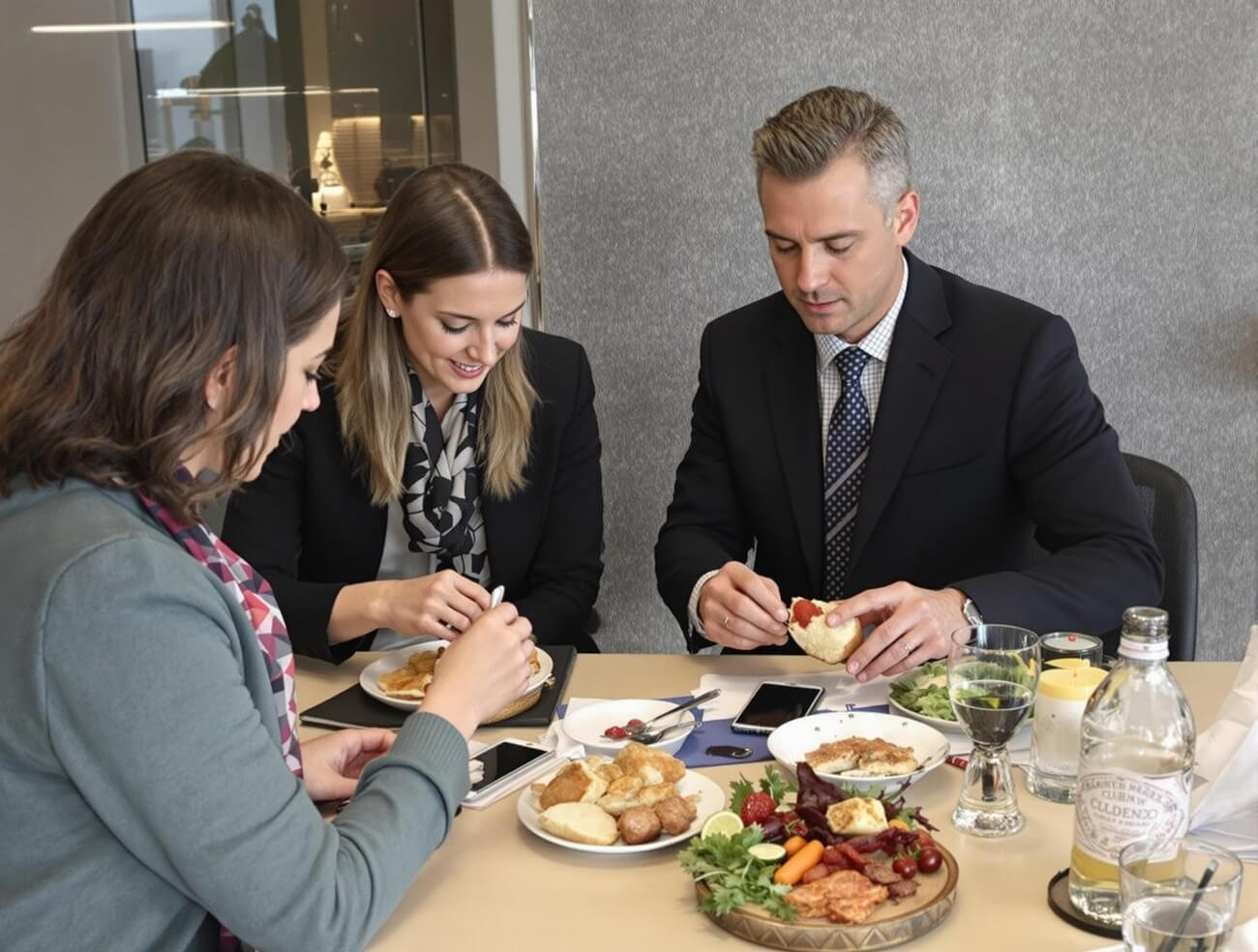Badania rynku testów żywności i napojów

In a rapidly globalizing world, where the movement of food products across borders is becoming increasingly frequent, ensuring the safety and quality of these goods is critical – and the role of food testing has never been more crucial. Food and beverage testing market research provides an invaluable tool to gauge the current state of the industry, its potential pitfalls, and the myriad opportunities that lie ahead.
Understanding Food and Beverage Testing Market Research
At its essence, Food and beverage testing market research delves into the methodologies, technologies, and market dynamics associated with food testing. It covers the scientific methods to analyze food products and the broader industry trends, regulatory environment, and consumer demands influencing these practices.
Food testing can broadly be categorized into two domains:
- Safety Testing: Primarily identifies potential hazards in food such as pathogens, contaminants (like pesticides or heavy metals), and allergens. Its primary goal is to ensure that food products are safe for consumption.
- Quality Testing: While also linked to safety, this focuses on the sensory and compositional attributes of food – taste, texture, appearance, and nutritional content. It ensures that the product aligns with its specifications and meets consumer expectations.
Food safety is a public health priority, and regulations are crucial. Food and beverage testing market research offers insights into the regulatory frameworks of different regions, ensuring products meet established safety standards and compliance requirements.
Beyond regulatory compliance, the research also examines consumer demands and perceptions. As consumers become more informed, there’s a growing demand for transparency, traceability, and sustainability – all of which influence testing methodologies. This encompasses the study of market drivers, challenges, opportunities, and potential growth areas in the food testing sector.
Food and Beverage Market Research Testing

In any industry, insights gleaned from well-executed market research can help you to make better-informed decisions. But, while companies in all industries may test their products or services, the food industry is the only one where taste sensory insights play a significant role.
New ingredients are regularly introduced into foods and beverages, and these differ across countries and certainly among smaller regions. Concept testing may also be done before or with such development efforts. Besides taste, the look, feel and packaging of foods and beverages can impact consumer choices. Bottling and canning, labeling, and packaging can influence the perception of a product’s quality and appeal.
Examples of a wide variety of questions that market research can investigate and answer include:
- How important are natural or organic products?
- Can consumers taste/tell the difference among various mixtures of ingredients?
- To what extent does temperature affect the flavor?
- How does altitude alter the flavor of meals that are prepared for airlines?
- For how long is it safe to store before it spoils?
- Is glass, plastic, or a metal container best?
- Are there any possible side effects from fertilizers or pesticides, such as allergic reactions or interactions with common medications?
Importance of Food and Beverage Testing Market Research in the Current Global Scenario
The global food market has undergone profound transformations in recent years. With a sprawling network of supply chains, increased international trade, and a more discerning consumer base, ensuring food products’ safety, quality, and authenticity has become essential. Against this backdrop, market research emerges as a vital tool for food and beverage testing. Here’s an exploration of its importance in the current global context:
- Growing Concerns Over Contaminants: With numerous outbreaks of foodborne illnesses and contaminations making headlines in the past decade, there is heightened public awareness about food safety. Food and beverage testing market research identifies potential contaminants and areas of concern in the supply chain.
- Meeting Dietary and Health Needs: As consumers become more health-conscious, understanding allergens, nutritional components, and dietary suitability (e.g., gluten-free, vegan) is a must.
- Global Standards: With globalization, food products often travel through international borders, necessitating compliance with multiple regulatory standards. Food and beverage testing market research provides insights into these evolving regulations, assisting businesses in navigating this intricate landscape.
- Avoiding Recalls and Fines: Non-compliance can result in costly recalls and reputational damage. Understanding testing standards and market demands helps businesses preemptively address potential issues.
- Traceability: Consumers and regulators increasingly demand transparency and traceability in the food chain. Comprehensive testing and research assist businesses in ensuring product origin and chain of custody.
- Emerging Technologies: New techniques, like DNA sequencing and blockchain for traceability, are revolutionizing food testing. Staying updated with these advancements through Food and beverage testing market research is indispensable for businesses to remain competitive.
- Rozwiązania na miarę: Businesses can leverage market research to develop innovative solutions tailored to specific consumer demands, such as clean labels, organic certifications, or GMO-free products.
- Ekspansja rynku: By understanding current testing trends and demands, businesses can identify potential new markets or sectors ripe for expansion.
Key Drivers for the Growth of Food and Beverage Testing Market Research

Food and beverage testing market research is an ever-evolving domain witnessing consistent growth. Various driving factors rooted in consumer behaviors and industry dynamics influence the advancements and trends in food testing. Here are the primary drivers propelling the growth of this market research sector:
- Rising Incidences of Foodborne Illnesses: Frequent outbreaks of diseases caused by foodborne pathogens, such as E. coli or salmonella, have heightened awareness and necessitated rigorous testing to ensure food safety.
- Stringent Regulatory Standards: Government bodies worldwide are tightening food safety regulations to protect public health. Compliance with these standards is imperative, propelling businesses to invest in advanced food testing methodologies.
- Globalization of the Food Supply Chain: As food trade becomes increasingly international, products must meet the standards of multiple markets. Harmonizing these standards and ensuring consistent quality across borders necessitates comprehensive food testing.
- Consumer Demand for Transparency: Today’s informed consumers demand clear labels, traceability, and transparency in their food. As preferences shift towards organic, non-GMO (genetically modified), and clean-label products, robust testing is required to validate these claims.
- Innovations in Food Testing Technologies: The rapid advancement in food testing technologies, like rapid microbial detection and DNA sequencing, is driving more businesses to incorporate these into their safety and quality protocols, fueling market research in the domain.
- Sustainability and Ethical Sourcing: As consumers become more environmentally conscious, rigorous testing becomes essential to verifying sustainability and ethical sourcing claims.
- Shift in Dietary Preferences: The increasing popularity of dietary trends like veganism, paleo, or keto has created a demand for specialized food products. Authenticating these products and ensuring they meet their labeled specifications necessitates specialized testing.
Finding a Food and Beverage Market Research Testing Company
The following are common considerations in food handling and Food and beverage testing market research:
- Soft drinks as well as alcoholic ones generally do not require any preparation and therefore may be tested in malls, bars and clubs.
- Many other foods can likewise be tested in a variety of settings:
- Snacks, candies, and some desserts
- Fruits, vegetables and most nut products
- However, dairy, meat, fowl and seafood items require refrigeration and/or cooking.
We may have the following questions when we work with Food and Beverage clients:
- Depending upon the product, will there be a need for screening and recruiting respondents?
- Who will conduct interviews or focus groups?
- Where is your product being distributed and sold?
- What markets do you want to test? Knowledge of different countries, customs, tastes, flavors, cultures and dietary factors can be useful skills to look for.
- Will you need special cooking or electrical equipment to conduct the food test?
- Will you primarily be testing for Food taste, packaging or other factors?
- Would you like the facility to simulate a particular dining setting or ambiance?
- How important is seasonality to the Food Test?
- Health and safety regulations are not universal, and knowing how they differ by market is essential.
We will also explore your expectations in a report of findings.
- Will there be need for a detailed analysis?
- How will the information be used by your managers and decision makers?
- Will recommendations be sought?
Future Outlook of Food and Beverage Testing Market Research

Technological innovations will play a crucial role in shaping the transformation of this market. Advanced testing techniques such as Near Infrared Spectroscopy (NIR) and High-Resolution Chromatography are expected to gain more prominence in identifying contaminants and determining food authenticity.
Furthermore, the globalization of the food trade is generating a greater demand for testing to meet international regulations and standards. This will lead to an increased adoption of food testing services across all supply chain stages, from production to distribution.
Finally, the trend toward a greater preference for organic and natural foods will also drive the need for pesticide residue testing and other chemical analyses. Consumers increasingly demand transparency in the food supply chain, which will foster the adoption of testing methods that demonstrate product authenticity and quality.
What Sets SIS International Apart as a Leading Food and Beverage Testing Market Research Company?
Od ponad 40 lat SIS Międzynarodowy has been a trusted partner for food and beverage companies seeking reliable market research insights. Our expertise, innovative methodologies, and client-first approach make us a standout choice for businesses aiming to perfect their products and meet consumer expectations.
Dziesięciolecia sprawdzonego doświadczenia
SIS brings unmatched experience to food and beverage testing. With over four decades of helping global brands succeed, we’ve built a reputation for delivering accurate, actionable insights that drive product innovation and market success.
Comprehensive Testing Capabilities
Our food and beverage testing services evaluate every aspect of your product, including taste, aroma, texture, appearance, and packaging. We customize our methodologies to suit your specific needs, whether you’re developing a new recipe, enhancing an existing product, or benchmarking against competitors.
Access to Diverse Consumer Audiences
Located in the heart of New York, SIS has access to one of the world’s most diverse consumer populations. This allows us to provide feedback from various demographics, giving insights that resonate across different markets and cultures.
Obiekty najnowocześniejsze
Our modern testing facilities have advanced tools and controlled environments, ensuring precise and reliable research. From central location tests to sequential or monadic testing, our infrastructure supports the highest standards of quality and accuracy.
Client-Centered Flexibility
SIS adapts to each client’s unique goals. We understand that no two businesses are the same, so we work closely with you to design research programs tailored to your objectives, whether for food, beverages, or both.
Cost-Effective Research Solutions
At SIS, we believe premium insights shouldn’t come at an exorbitant price. Our affordable services provide exceptional value, allowing businesses of all sizes to access top-tier food and beverage testing expertise without compromising their budget.
Actionable Insights That Drive Results
We don’t just deliver data—we provide strategic recommendations that help you refine your products and boost market performance.
Fast and Efficient Processes
Time-to-market is crucial in the competitive food and beverage industry. SIS ensures quick turnaround times, enabling you to respond rapidly to market trends and consumer feedback without delay.
Commitment to Excellence and Integrity
At SIS, we pride ourselves on conducting unbiased, ethical research. Our methodologies eliminate external influences, ensuring that your products are evaluated on their true merits.
A Partner for Long-Term Success
SIS isn’t just a research provider—we’re a strategic partner invested in your success. Our collaborative approach and industry expertise ensure we deliver insights that help you stay ahead in competitive markets.
About us
If you plan to conduct food testing among consumers (as opposed to using technology and some form of automated equipment), choose SIS, which has over 40+ years of experience in serving Food and Beverage clients. We provide:
- Recruiters
- Moderators
- Proprietary methods and analytics
- Facilities for personal interviews and focus groups
- Kitchens in which food can be stored, prepared and served
- Audio/Video equipment to record all aspects and reactions
Manhattan NYC Food Testing Facility
Learn more about our New York City Food Testing facility.
Lokalizacja naszego obiektu w Nowym Jorku
11 E 22nd Street, piętro 2, Nowy Jork, NY 10010 T: +1(212) 505-6805
O firmie SIS International
SIS Międzynarodowy oferuje badania ilościowe, jakościowe i strategiczne. Dostarczamy dane, narzędzia, strategie, raporty i spostrzeżenia do podejmowania decyzji. Prowadzimy również wywiady, ankiety, grupy fokusowe i inne metody i podejścia do badań rynku. Skontaktuj się z nami dla Twojego kolejnego projektu badania rynku.


